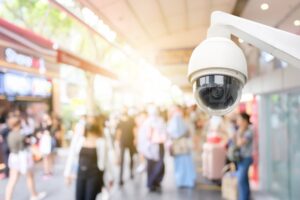Security Camera Laws in Canada
Security Camera Laws in Canada
Are you considering a security camera at your home or business? These cameras seem to be everywhere these days, and technology has made them more accessible than ever before. However, there are Canadian surveillance regulations of which you should be aware, before you set up any kind of security system that uses cameras. Here, we offer a quick rundown of privacy laws for security cameras in Canada and the video surveillance legislation you need to understand.
Residential Security Camera Use
We will start off by talking about cameras installed by home owners, because this is fairly straightforward. When it comes to residential usage, security camera compliance in Canada simply means respecting the privacy of people who are not on your property. Homeowners are allowed to install cameras on their properties to keep them safe, but they must take care not to capture footage of public spaces or neighbouring properties.
Surveillance in Public Spaces and Businesses
While surveillance cameras are legal in Canada, one must be mindful of certain privacy laws. Because of PIPEDA (the Personal Information Protection and Electronic Documents Act), people must give their consent before organizations are permitted to film them. Does this mean every person entering your business must sign a waiver if you have a surveillance system in place? No, but it does mean that businesses and organizations must inform people of the presence of a camera by posting clear signage. Further, surveillance cameras are illegal in private spaces like bathrooms and changing rooms, and people can request for footage of them to be deleted. Surveillance cameras cannot be placed in such a way that they can be used to look into neighbouring buildings, either.
Legalities of CCTV in Canada
In business, CCTV security cameras are often necessary for the protection of staff and assets. However, there are laws governing the usage of these systems, as well, again focused on protecting privacy. For instance, PIPEDA requires employers to obtain employee consent before installing surveillance cameras, and there must be a legitimate need for these cameras to be installed. The use of cameras in the workplace is controversial, because some argue that it is an invasion of privacy and creates an environment of distrust. Because of this, the most recent guidelines for workplace surveillance emphasize transparency and accountability, recommending that employers inform their staff of the purpose of the surveillance, what data is collected, and how it will be used. Employers are also encouraged to conduct a privacy impact assessment before installing any surveillance devices.
Accurate Security Can Help You Sort Out Security Camera Laws in Canada
Since 1968, Accurate Security has served homes and businesses in the Lower Mainland, and we’re the Greater Vancouver area’s premier choice for safety and security. One of the few family businesses left in the industry, Accurate Security was founded by Mark Oljaca and is now led by his son, Tony Oljaca. From our beginnings as a single locksmith store, we have expanded to seven different locations, offering a wide range of product and services beyond and including locksmithing. Our nearly 70 employees have vast knowledge and expertise, and we are committed to the safety and security of our customers. Providing a complete range of safety and security systems, various products, and state of the art services, we provide prompt and professional services that ensure you never have to feel unsafe in your home or workplace again. For a free security screening or to learn more about all we have to offer, get in touch with our seasoned team by calling 604.777.3888 or contacting us through our website.
